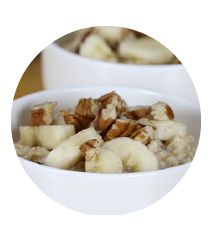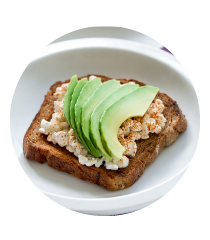 American Heart Association
American Heart Association Take Control of Your Health
Because being healthy and thinking you're healthy aren't the same.
High cholesterol isn't cool, but living longer is.

Make Changes to Live a Longer Life
In Puget Sound, high cholesterol is a leading risk factor for heart disease and stroke. Thick or thin, old or young - it doesn't matter. Cholesterol doesn't discriminate. But guess what? We can do something about it! We can make changes to live a longer life and enjoy more invaluable moments with our family and friends.
AHA Announces New Cholesterol Guidelines

Heart Warrior: Joe Farrington
At age 19 Joseph Farrington was aware that he had high cholesterol and high blood pressure. But he was a young military man and, in his mind, indestructible. “At 19, I wouldn’t have wanted to be on meds even if I was offered,” he explains. Doctors thought he was healthy and fit and didn’t prescribe medication until he was 36 years old. With the meds, he thought he could eat whatever he wanted.
Then a silent heart attack stunned him into facing reality.
The day was September 29, 2016. Joe was 53 years old, sweaty and feeling breathless as he walked into work. More symptoms came after lunch: stomach cramps, nausea, back pain and stomach pain. His blood pressure measured at a dangerous 186/100 but he was convinced he had food poisoning and decided against going to the emergency room. When he finally went to see a doctor, his physician agreed with him, but referred Joe to a cardiologist because he had a family history of early heart attacks, including his mother who died at just 54 years old.
“The cardiologist conducted a stress test but stopped the test within the first two minutes,” he recalls. “My EKG was going crazy and further examination showed that I had signs of having experienced a silent heart attack!” The nurse told him that the doctor suggested taking a baby aspirin daily, working out, and losing weight. “I said no! I want to speak to the doctor in person.” He told the doctor that he was sure the heart attack happened on September 29 and three weeks later had not recovered his strength.
Joe was referred to a cardiac surgeon and a procedure was performed to check for blocked arteries. “They discovered that one of my arteries was 100% blocked and the cardiologist was amazed I survived 30 days with a blockage the normally kills most people.” An additional five arteries were partially blocked, requiring two surgeries and six stents to clear up. “Miraculously, I have no permanent heart damage.”
Joe has since learned that he has familial hypercholesterolemia, an inherited defect that keeps bad cholesterol levels high and elevating the risk for heart disease. Medications are required to treat it, but diet and exercise can help.
Two days into his recovery, Joe signed himself and his wife up for a 5K run. Two weeks later, he got cleared for exercise and Joe hit the pavement with walking and then jogging. Four months after the heart attack, he completed a 5K with a personal best time. He has completed 17 races as of July 2018 and is still going. Both exercise and a significantly improved diet has led to considerable weight loss and a lot more energy for Joe.
“I don’t want anyone else to learn the hard way. Even if high cholesterol runs in your family, you can mitigate the risks by eating right, exercising more, and controlling your weight. I focus on fresh foods and eat more fruits and vegetables, fish or lean chicken,” he says. And one more thing: listen to your body. “If you have the type of symptoms I experienced, don’t tough it out. Call 911 and get to the ER immediately!”

Does your mom or dad have high cholesterol?
High cholesterol can be genetic
Familial hypercholesterolemia (FH) is an inherited defect in how the body recycles LDL cholesterol. LDL levels in the blood remain very high — in untreated adults, above 190 milligrams per deciliter (mg/dL) of blood.
One in 250 adults (an estimated 834,000 people) have FH.
This condition is a leading cause of heart attack at an early age.
Everyone’s cholesterol levels tend to rise with age, but people with FH are basically born with high cholesterol — and as time passes, it gets worse.
That's why it's important to know your family history, have regular checkups with your doctor and know your numbers. Find more information on cholesterol below and here.
Genes aren't everything
Knowing your family history is important when it comes to health, but it isn't everything.
High cholesterol usually has no symptoms. That's why it’s important to have your doctor check your cholesterol levels.
Don't worry, cholesterol tests shouldn't be a cause of anxiety. All you need to do is fast for nine to 12 hours prior to testing and get a quick blood test from your healthcare provider. Once you get the results you can talk about next steps with your doc. Simple as that.
Food as fuel
A fish dish that cooks in minutes
This recipe just needs a bit of time to marinate but then cooks up in minutes! It’s perfect for a quick and easy evening meal. Prep the ingredients before you head out the door for the day.


Savory Turkey Torta with Spicy Avocado Salsa
Watch: Three Delicious Ways to Lower Your Cholesterol









